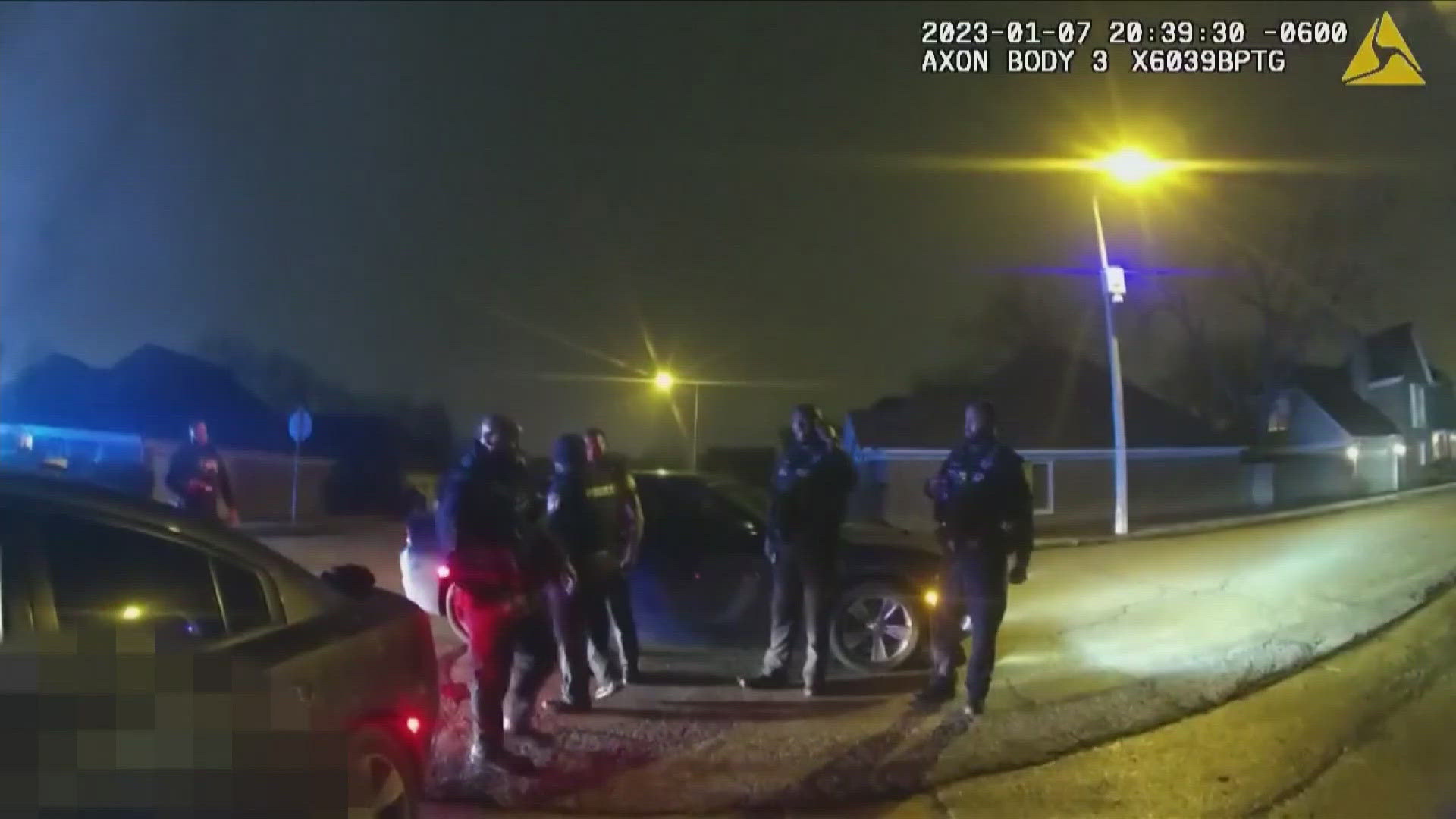MEMPHIS, Tenn. — District Court Judge Mark Norris said Friday the trial of three former Memphis Police Department officers has moved from checkers to chess.
Defense attorneys for three former MPD officers asked Norris to rule that internal response to resistance forms are protected by Garrity, or, the right of public employees not to be compelled to self-incriminate, and should be kept out of the trial.
Response to resistance forms are filled out any time force is used as per MPD policy.
Demetrius Haley, Tadarrius Bean and Justin Smith are set to stand trial in the United States District Court, each facing four counts of deprivation of rights under the color of law through excessive force and failure to intervene, and through deliberate indifference; conspiracy to witness tampering; and obstruction of justice through witness tampering.
Tyre Nichols died on Jan. 10, 2023, three days after a violent encounter with Memphis Police's SCORPION Unit on Jan. 7.
Defense attorneys argued that because there is a threat of discipline for not filling out the response to resistance forms, that they are then compelled and thus Garrity.
Prosecutors argued that if the defense were to be granted the motion that this would have wider implications since things such as not turning on body worn cameras or filling out any report carry disciplinary actions that then those could also be protected and essentially create a new law.
Defense attorneys said that because MPD policy and procedures handbook reads that they are sent to the departments inspectional services bureau to be reviewed, that they could constitute a Garrity statement because of possible self incrimination.
Prosecutors said that the response to resistance forms were filled out before ISB officers ever made contact with the former officers the night Nichols was pulled over.
Haley took the stand to say he was never given a Garrity warning or fifth amendment reading and had been in trouble for not filling them out before in November 2021.
During the prosecutions cross examination of Haley, he said he did text other officers who had told him to put active resistance into the form and admitted things were left out of the filing.
“But not on purpose,” Haley said.
Norris took the matter under advisement and ultimately ruled in favor of the prosecution, allowing the response to resistance forms into evidence for the trial.
Stengel officially asked for a mistrial on counts three and four if the response to resistance forms were found to be covered by Garrity after court resumed at 1 p.m. Friday.
Judge Norris ruled in favor of prosecutors citing that lawyers had previously filed reference to the response to resistance forms, and that further investigation was needed, but nothing further was ever done.
"Defendants had notice through initial disclosures and the indictment itself," Norris said.
Norris said prior caselaw supported that response to response to resistance forms were not Garrity and thus ruled that the mistrial motion was voided.
Jurors finally entered the courtroom at 1:30 p.m. Friday and MPD Second Lieutenant Larnce Wright was able to continue his testimony from Thursday.
Wright was shown the response to resistance forms filed by officers Bean, Haley and Smith and said they were not in line with what is taught in the academy due to being inaccurate when compared to the video.
Two of the response to resistance forms from Bean and Smith note that Nichols was "actively resisting," and they used "soft hand technique with a closed fist," which Wright said is not taught in training.
Haley's form reads that Nichols arms were swinging at the scene, that he had gone for a gun and never mentioned that Haley was at the second scene.
Wright said he did not see Nichols arms swinging or heard an officer say, "Let my gun go."
Wright said that reports should accurately describe a suspects behavior.
"From the report, I would say that he wasn't at the second scene," Wright said.
Defense attorney for Tadarrius Bean, Kevin Whitmore, was able to cross examine Wright before the break for the weekend.
Whitmore brought up that in training presentations on the response to resistance continuum, officers are allowed to elevate force.
“Officers are allowed to escalate their response to resistance to a particular situation as their training dictate,” the presentation reads.
Whitmore noted specific hours spent on trainings at the academy, noting only four hours for handcuffing.
The defense alluded that Bean was not trained enough and noted his class was during the height of COVID-19 precautions and that some trainings were modified.
Whitmore said that if Bean had not been properly trained in ground fighting, that could impact his response to the situation.
Before Whitmore was done with his cross examination, the court broke for the weekend.
The trial will resume Monday morning.

